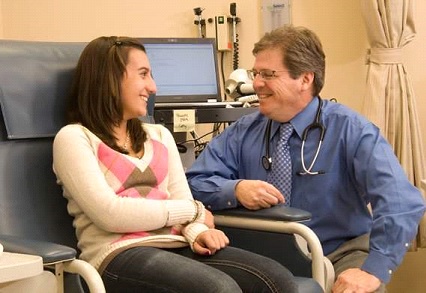
What comes to mind when you think of “clinical research”? If you are like most Americans, the words may evoke negative feelings or perhaps images of animal or human studies. These decades’ old misconceptions are relatively common and are actually responsible for holding back real scientific research that brings cures and remedies from honest sufferers of many major ailments.
Truth is that these days research for new medicines or delivery systems for these medicines have the participant’s best interest in mind as a priority. While certainly there are companies that will do the bare minimum and who are financially motivated, there are hundreds of companies who are genuinely trying to improve the quality of life for chronic sufferers of diseases and ailments.

One of the companies that has a track record of going above and beyond in terms of participant treatment is NEMRA out of Dartmouth, MA. Here is a company that is a leader in providing kind, sensitive patient service. One of their primary motivations is to cull enough data to give pharmaceutical companies the information they need to improve their products and medicines.
While a person who partakes in a research study may be individually motivated – many times they receive financial compensation, free medical care related to their disease while involved in the study, and the most modern medicines – the benefit is a much larger one. Information that the individual provides will benefit the entire group of people who suffer from similar ailments. It’s a collective undertaking to help solve serious health issues.
The wonderful, friendly staff at the Dartmouth Facility received me warmly and gave me a full tour. Dr. S. David Miller and his staff are very motivated to have a vehicle to showcase the positive service they offer at their 8,000 sq. ft. state of the art facility – which is one of the largest in the New England.
Unlike many research facilities that solely run clinical studies, the staff at NEMRA are also practicing board certified medical doctors. They have decades of experience handling families who have entrusted their well-being in their hands. Indeed, Allergy Associates has been taking care of families for over 50 years. Seeing what many of their patients go through and wanting to speed up quality research in the fields where they suffered was the initial motivation for expanding into clinical research.
Their primary goal is to “…provide quality, reliable clinical data that is used to advance new medical treatments designed to improve the many human conditions.”

While NEMRA focuses on respiratory research specializing in Asthma, Allergies, and Chronic Obstructive Pulmonary Disease (COPD), they also have done substantial studies in Cardiovascular Medicine, Dermatology, Rheumatology, Osteoarthritis, Headache, Endocrinology, Healthy Volunteer and Drug Interaction Studies. They have done this at the national and international level and are regarded by their peers as the premiere experts in clinical studies.
List of current studies: nemra-us.com/current-studies
Northeast Medical Research Associates
49 State Rd, Watuppa Building
North Dartmouth, Massachusetts 02747
Phone: 508.992.7595
Email: study@nemra-us.com
Facebook: facebook.com/pages/Nemra-USA/168255389882094
Website: nemra-us.com/
Testimonials: nemra-us.com/patient-testimonials/
Interview with Dr. Miller:
NBG: I’ve been reading up on your history and information. Let’s go through some of the more involved questions in your research. Why did you choose to focus on respiratory medicine?
DR. MILLER: Number one: we get to see a positive effect with kids and adults. Number two: I used to do internal medicine…while there were lots of chronic conditions…with [respiratory medicine] we could actually make people better. Some conditions are chronic and never get better. At least with asthma and allergies and such, you can make a huge improvement in their lives in a quick manner. That was the key: to be able to see direct results in terms of people getting better and how it affected their lives.
NBG: Was this a positive effect in most cases?
DR. MILLER: It was harder when I first started, but with the advent of new medicines and things like that it’s a lot easier to have control over these patient’s conditions.
NBG: When I was a kid, an old folk remedy to cure asthma was “Just go swimming a lot.”
DR. MILLER: “Oh yeah, we’ve heard a lot of stories – drink coffee, go out in cold air. Way, way back if you had asthma, they’d give you morphine, stick you in an oxygen tent and hope you got better. Now, with new medicines, it really made a big difference. Over the years we’ve seen a vast improvement with these types of conditions.
NBG: You do all 4 phases of clinical trials…are you focused on any one in particular now?
DR. MILLER: We tend not to do the post-marketing phase studies…phase IV…we tend to do earlier intervention studies, focusing mostly on phase I to phase III.
NBG: There are many studies that people can sign up for at NEMRA. Those are a mix of phase I through III?
DR. MILLER: Most of them are phase II and III we’re one of the few phase I units in the whole Northeast. That means people stay in house – they actually stay here, sleep here. Live here for short periods of time.
NBG: Can you break down the objective of each of the phases?
DR. MILLER: Phase I, studies the safety of the drug or device which includes a small number of healthy volunteers. Early phase I is exploratory where you are testing the effects on people, not the disease. You are looking for side effects or things like that. This is after extensive testing on animals. We’re looking for any problems with medications. You can also pick out somewhere you can make improvements.
If it passes the safety trials and enters phase II, we are looking for efficacy and seeing if the medicine is showing some promise. Phase II trials involve several hundreds of patients.
Phase III which tests several hundred to several thousands of patients, provides the FDA with a more thorough understanding of the effectiveness of the drug or device. Once this is complete the Pharmaceutical Company will go for approval with the FDA.
Phase IV is post marketing. Is really like “Do you like my drug? Do you like this drug? Which one is better?”
NBG: Many of the studies are about testing the means of delivery and not necessarily a medicine. Please explain.
DR. MILLER: Any time there is a new device, especially being in the respiratory field, even if it’s just putting a new counter and not necessarily the delivery aspect of the device, there has to be phase III trials to see that the device is doing its job. They haven’t been approved by the FDA.
NBG: What is the typical timeline from the having volunteers show up to the time the FDA approves a new medicine?
DR. MILLER: It takes an average of 12 years for a drug to be approved from start to see it marketed.
NBG: How quick can someone jump into a study from the time they call to actually showing up here?
DR. MILLER: It could be right away. Once they go through the screening process and they qualify, the clock starts ticking and they can come right in. Every study is different. You may have weekly (once per week) or monthly visits (once per month). Perhaps they stay overnight. You may have trials that you have to stay for 12 hours so we can take breathing tests while we evaluate you. So, each study has its nuance.
NBG: What is a standard overnight visit like?
DR. MILLER: They could stay 24-36 hours. We’ve actually done studies where people have stayed a week. They facility is setup for that. To make it very comfortable for the patient. There’s Netflix.
NBG: It looks like a resort or hotel…
DR. MILLER: It’s like a nice hotel room. We have a kitchen, we cook, they get fed, there are showers, changing areas, high speed internet so people can do their work, students can do their study, etc. we’re looking to minimize their inconvenience while they’re here. There’s a lot of downtime. People can just relax.
NBG: Can they leave at all?
DR. MILLER: Usually if they are mandated to stay, to complete the study, we need them to stay.
NBG: So no heading to Mirasol’s?
DR. MILLER: Unfortunately no. Sometimes there are food restrictions. For example, there may be an oral tablet study where the medicine has to be taken with certain types of meals. Once we did a study where people had to have fatty foods like donuts, bacon, eggs, etc. We need to see the interaction. We especially don’t want them to take other medicines that could skew the study.
NBG: How much time percentage-wise is doing the actual research or in the study?
DR. MILLER: It really depends on the study. Sometimes it’s just waiting around to do a breathing test or to draw blood. You’re not “going at it” every minute of your stay here. Some studies, you just sleep through most of it, because we need to see what things are like at 6:00 am.
Study participation can range from one week to two years. It depends on the type of trial we are running. For the most part the average seems to be 3-6 months. Some companies like to do long term safety trials that can go a year or longer.
NBG: There are obviously a lot of misconceptions and exaggerations about clinical research. What are some of the most common ones?
DR. MILLER: People need to understand the primary concern with these studies is that the safety of the patient is paramount. Everything is reported. Everything is watched. With these studies we have the resources to fully evaluate the patients then your primary care physician would have. These drugs have been through animal testing. Granted though, even in animal testing nothing may show up. Sometimes going form phase II to III you can see changes you didn’t see in the smaller studies.
People need to understand that EVERY medicine on the market has had to go through this process. Everything you get as a prescription or anything that was a prescription and can now be gotten over the counter has been tested and submitted to the FDA.
It goes back to the 60s, where there is the case of Thalidomide – which was a sedative used with pregnant women and it led to birth defects. Since then the FDA has very strict criteria and the Pharmaceutical companies want it that way. Nobody wants to see anyone have any issues. There have been study drugs that we’ve stopped in process. It’s always up to my discretion to stop a study, perhaps a patient isn’t getting better and I feel there is an issue; the patient is on a placebo and not doing well.
So, the biggest misconception is that a person believes that something bad is going to happen to them. The opposite is true: usually, you know, a drug that goes through the process, these are drugs that are already likely to improve conditions.
In fact, everything on the market for asthma and allergy has been tested here. There’s not one thing out that that we have not investigated.
It’s rewarding to see all that work come into play. When I see patients in my own practice, I have years of working with these drugs, when something new comes on the market, I have no problem adapting it very quickly.
In fact, many physicians in the area use us as the “thought leaders” and follow our lead, because they know that we’ve been working with these drugs for many, many years and we don’t have to wait for everyone else to try them before using them. We’re ahead of the curve.
NBG: Describe some of your longer term patients.
DR. MILLER: We’ve had patients who started here as children and they’ve grown up and their children are now doing studies. I think once people have that comfort level and understand our interest is their best interest they feel comfortable. People have done one study and they return for another and another.
We are always answering their questions and concerns. Everything is explained. We’re always on call for questions or problems. Most people typically come back for another.
NBG: What are some people’s anxiety or fears when they actually show up and ready?
DR. MILLER: People may think we might be giving them something new that may not work as well or as better than what they are taking already or that it’s experimental. All these protocols are scrutinized by the FDA before they start. There is also an institutional review board (IRB) a round table of physicians and lay people that will look at the protocols and review and approve the study.
People may not understand that a typical drug has a patent lasting for 15 years. By the time they get to human trials it may have been 5, 6, or 7 years already. So, all the previous investigations including animal trials, cell biology trials, looking at healthy individuals for side effects. There is a very rigorous process before it even reaches us. This is not the first time a person has been exposed to a drug.
Drug companies have a vested interest to find better drugs that have little risk. The benefit has to outweigh the risk to be approved. When they are developing a drug, they have this in mind from the beginning. They want the least amount of side effects while seeing improvement in patients.
NBG: In this field, would you say the illness is being treated or its symptoms?
DR. MILLER: At least in our field, most of the work has been in prevention. We’re not waiting for you to get sick, to treat you. Now, we want to prevent you from getting sick. It’s been a big turning point in the treatment of asthma.
What we’ve seen is a dramatic reduction in the amount of people that die from asthma, reduction of hospital stays, etc. We have more effective preventative medicines, better inhalers and devices, easier to take medicines, etc.
NBG: You’re doing these clinical studies, but you’re also practicing physician. It seems that there would be some larger benefits to that.
DR. MILLER: It allows me to be on the cutting edge of medicine. I know more about asthma than the physicians in this area, because of my involvement in these studies and first-hand knowledge.
I can institute these new drugs immediately because I don’t have any fear and concerns. It’s not new or unfamiliar. I also know all of the side effects, if any.
NBG: You have what are called “Principal Investigators.” Tell me about the staff – are there twelve?
DR. MILLER: Well, there’s myself and four other physicians, one nurse practitioner and twelve staff members. I am the Principal Investigator which means it’s my obligation to run the trial; I’m responsible for everything that goes on in the trial. I’m the lead and there’s four other doctors. As the PI, the buck stops with me. It’s my watch.
NBG: What dictates how many studies you’ll do? How do you decide which ones to do?
DR. MILLER: Well, it depends on how many drugs are primed and ready. The Pharmaceutical companies will come to us. It’s in flux. Studies will come and go throughout the year.
NBG: What is the biggest benefit for people getting involved in a study?
DR. MILLER: Number one, you learn a lot about the disease. You become better educated. You learn better techniques in monitoring your disease. You get better access to cutting edge medicines. Perhaps better access than your primary care physician could offer. In addition, there is a greater focus on the patient.
NBG: So instead of a few minutes of attention from your primary care physician, who may have 50 more people to see after you, you get special amounts of attention?
DR. MILLER: Exactly. Not only that, but you get a large team of specialists, more eyes on you than just one physician. There is much more time allotted to you.
NBG: Out of curiosity: do the drug companies ever visit?
DR. MILLER: Yes, all the time. The site is known as a site of excellence, not only do we get audited by agents of the pharmaceutical companies, it’s a well regulated industry so we have internal audits of our data, standard procedures, and conduct. They want to see my involvement and that of our physicians are actually here. I’m not running around the country doing lectures or not in the office.
On top of that, the FDA can show up any day at their whim and investigate anything. There are multiple checks and balances.
NBG: Final words?
DR. MILLER: We are one of the most highly regarded respiratory research sites in the country, if not, in the world. We’ve have an immense amount of experience in the field. Alone, I’ve done over 300 trials. You don’t have to go to Boston – as many people think – to get the best treatment. One of the world’s most prestigious research sites is right here in their backyard in Dartmouth.
 New Bedford Guide Your Guide to New Bedford and South Coast, MA
New Bedford Guide Your Guide to New Bedford and South Coast, MA








